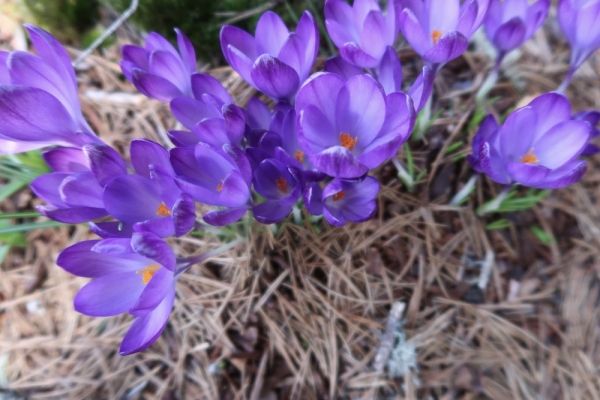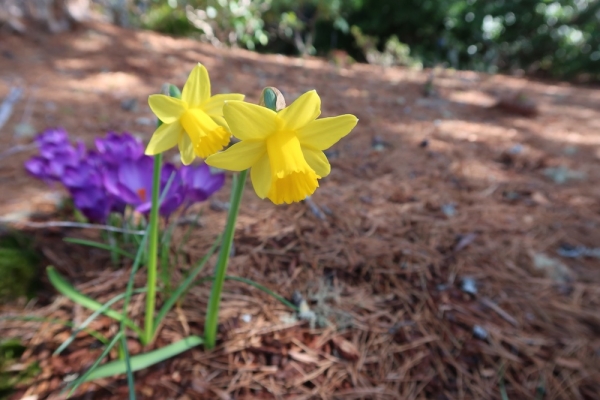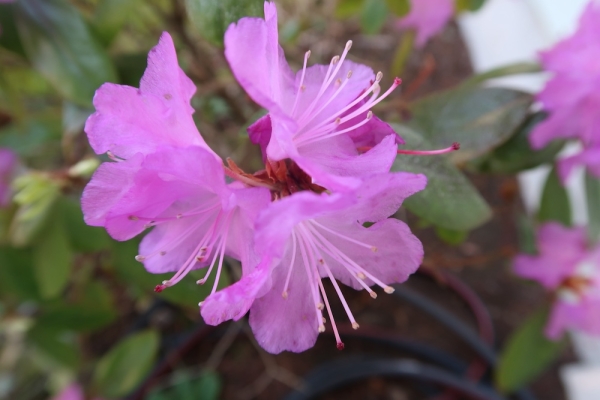Greetings!
How did it get to be April already? Signs of spring are starting to arrive and some of the early rhododendrons (affectionately known around here as "rhodies") and azaleas are starting to bloom. We're still getting a lot of rain here on the coast, but it's also starting to warm up. I'm looking forward to running around barefoot again!
I hope you'll enjoy this issue of Pianotes even if it's going out on April Fool's Day!
Around 1900, more American homes had a piano than a toilet. Music came mostly from informal gatherings in living rooms and on front porches. Sheet music sold for a penny on street corners.
Jazz pianist Art Tatum used to practice away from the keyboard by running filbert nuts across his fingers like a magician.
Irving Berlin, one of America’s greatest songwriters, could only play the piano in the key of F#. He owned a piano that would transpose his music into other keys for him.
New Reviews: I have a real boatload of new reviews for you this month! I've been trying to catch up after being one of the judges for the New Age Notes Awards and am gradually getting there! I reviewed music from five different countries this month, plus three songbooks, some sheet music, and a book. You can find links to all of them
here.
When they were both seven years old, Mozart proposed marriage to Marie Antoinette. She turned him down.
All of us have had problems reaching some of the notes in JS Bach's keyboard compositions. Historian Dr. Charles Burney says that Bach sometimes used a stick in his mouth to hit a key that he couldn't reach with either hand.
Dizzy Gillespie’s trademark bent trumpet came about by accident. In 1953, a fellow musician tripped over Dizzy’s horn, and the bell ended up at a 45-degree angle. Gillespie liked the sound, and used bent horns for the rest of his career.
New Interview: I did an interview with Raphael Groten in March. Raphael is a multi-instrumentalist and composer, and I've been reviewing his albums for the past ten years. I really enjoyed getting better-acquainted with Raphael and look forward to reviewing his latest album,
Inner Sanctum, which drops the first week in April (today, actually!). Here's the
link to the interview.
Camille Saint-Saens (1835-1921) was the earliest-born pianist ever to record.
John Broadwood of England made pianos from 1770 on. He invented the sustain pedal, strengthened the case and strings to increase volume, and added an octave, extending the keyboard to six octaves.
Although the piano was an Italian invention, it was the German, Austrian, English and French instrument makers who would come up with the design and structural improvements that would greatly improve the piano’s capacity by the end of the eighteenth century.
April Birthdays: Here are some of the musical birthdays coming up this month:
4/4: Andy Mitran, Loren Evarts
4/5: Frank Horvat
4/9: Jim Chappell
4/11: Roth Herrlinger & Isabelle De Ferrari
4/13: Stacey Bonk
4/14: Milana Zilnik, Alejandro & David Clavijo
4/15: Anastasia
4/16: Josie Quick & Sean Michael Paddison
4/21: RJ Lannan
4/23: Michael Brant DeMaria & David Pena
4/24: Carol Nicodemi
4/25: Faith Angelina
4/26: Scott D. Davis
4/28: John Nilsen & Carolyn Southworth
Jazz was the first musical style to originate in the United States. It was first heard in New Orleans in the late 1800's.
St. Cecilia is the patron saint of music.
George F. Handel composed his great “Messiah” in less than three weeks.
Music Holidays and Observances: Here are some more ideas for your "spring fling"!
Month:
International Guitar Month
Jazz Appreciation Month
Weeks:
4/6-13: International Trombone Week
4/15-18: World Irish Dancing Week
4/20-26: National Dance Week and National Karaoke Week
4/23-27: International Mariachi Week
Days:
1 - National Trombone Players Day
3 - Fan Dance Day
6 - Waltzing Matilda Day
11 - International "Louie Louie" Day & Barbershop Quartet Day
16 - World Voice Day
19 - Record Store Day
24 - New Kids On the Block Day
26 - National Dance Day
29 - International Dance Day
30 - International Jazz Day
In the eighteenth century, there were no keyboard tuners as such - keyboard owners and players were expected to tune their own instruments or have someone on their premises who did it for them. During the nineteenth century, piano tuning gradually turned into a profession.
By the 1870s, piano tuning was sufficiently established that it began to be treated as an attractive opportunity for classes of workers with disadvantages in the workplace. The Royal Normal College and Academy of Music for the Blind in England offered training in piano tuning to the blind, as did the New England Conservatory for women.
Franz Josef Haydn's compositions have more nicknames than those of any other composer in the history of music. It's no wonder when you realize that he wrote at least 22 symphonies in D major.

Snow crocus

Crocus and mini-daffodils

Primroses

Primroses

Rhododendron
To the best of my knowledge, the "trivia" items are true, but I can't guarantee it.








